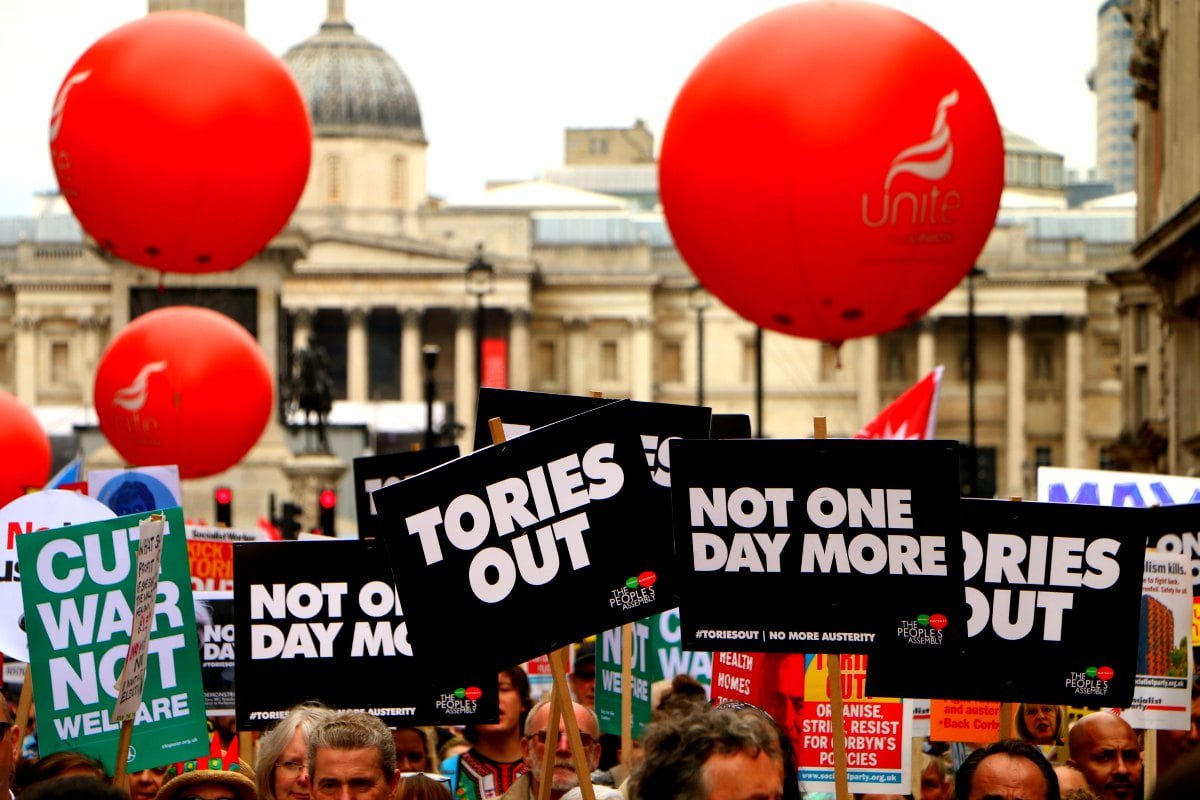This year’s Trades Union Congress is taking place in Brighton from 10-13 September. We look here at some of the issues being raised in conference motions, and discuss the way forward for the labour movement in the fight against the Tories and their programme of cuts and attacks on the working class.
This year’s Trades Union Congress (in Brighton from 10-13 September) is taking place at a very unsettled and challenging time. The Tory government is on the rocks with May seemingly on her last legs. While they have threatened to maintain the public sector pay cap, it is a very weak government that could be overturned if the trade unions took a firm stand.
Not surprisingly, many of the motions on the conference agenda are about Brexit. While many correctly call for the defence of workers’ rights, they also call for a “soft” Brexit with access to the Single Market. This is simply trailing after the CBI, which is keen to defend big business’ markets and profits. The EU has always been a bosses’ club. The TUC should instead be taking an independent class position and be arguing for a socialist Europe rather than trying to decide between a capitalist “hard” brexit and a capitalist “soft” brexit, neither of which will solve the problems of working people.
Two motions from UNITE and ASLEF deal with economic policy, rejecting austerity but putting forward a Keynesian solution based upon increased spending, most notably on infrastructure. One motion states that we affirm “that austerity has failed and that a new economic model is needed to ensure a strong economy that works for all.” It supports the calls for a National Investment Bank to support investment.
Unfortunately, the motions argue for the reform of capitalism rather than offering a socialist alternative. How can capitalism “work for all” when the economy is privately owned by billionaires who are only interested in making profits? Many industrial-based unions had constitutions which called for the socialist transformation of society. We should get back to those aims rather than trying to tinker with capitalism.
The RMT calls on Congress to reiterate its support for public ownership of the railways, welcoming “the Labour Party Manifesto commitment to public ownership of the railways and buses.” It welcomes opposition to the expansion of Driver Only Operation (DOO) and pays tribute to “the determination of rail workers who have taken strike action against DOO on Southern, Northern and Merseyrail. Congress resolves to maximise support for these and other rail workers taking action to keep the guarantee of a guard on the train.”
The union is correctly concerned at the conduct of the TUC during the ongoing Southern Rail dispute, where it hosted a meeting to agree a bad settlement deal with ASLEF officials and the bosses, behind the backs of the RMT. It was only the class solidarity of ASLEF members which got this rotten deal thrown out. The TUC officials need to be called to account over their actions.
The Trade Councils Conference have submitted a motion welcoming the ‘Lucas Plan’ 40th Anniversary Conference, something from which we can learn a lot today.
“The Plan was a pioneering effort by workers at arms company Lucas Aerospace to retain jobs by proposing alternative, socially useful applications of the company’s technology and their own skills. Forty years afterwards, we are facing a convergence of crises – militarism and nuclear weapons, climate chaos, and the destruction of jobs by automation – which means that we have to start thinking about technology as political, as the Lucas Aerospace workers did.”
The FBU has put forward a motion on the Grenfell Tower fire, which stands in solidarity with the victims and survivors and applauds the response of the emergency services and others to the fire and its aftermath. It points to the loss of over 11,000 firefighter jobs (19 per cent) since 2010, (including specialist fire safety inspectors) and that fire safety inspections have fallen by 25 per cent over the same period.
The motion condemns the “drive from central government towards deregulation and privatisation, particularly in relation to public housing and local government” and calls on the TUC to build a major campaign to ensure the public inquiry addresses the concerns of residents and survivors. It demands the exposure of the privatisation, casualisation and deregulation of public safety and calls for the reversal of cuts to fire and rescue services.
A key debate this year, given the weakness of the government, is over the pay freeze. The FBU has submitted a motion to fight the freeze. It calls on the TUC to step up the campaign on pay, with rallies culminating in a major demonstration. It concludes by demanding “immediate steps to commence a campaign for joint and sustained industrial action to defeat the pay cap.” This conclusion must not only be voted through by the TUC but be acted on without delay. Such a movement can reverse the freeze and even bring down the Tory government. Clearly, it is time for the TUC to act!






